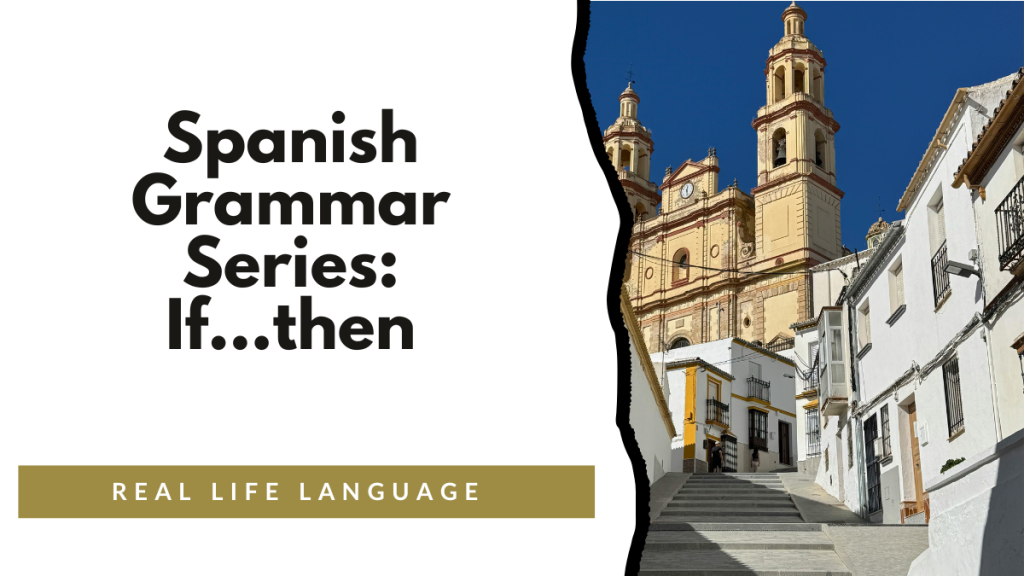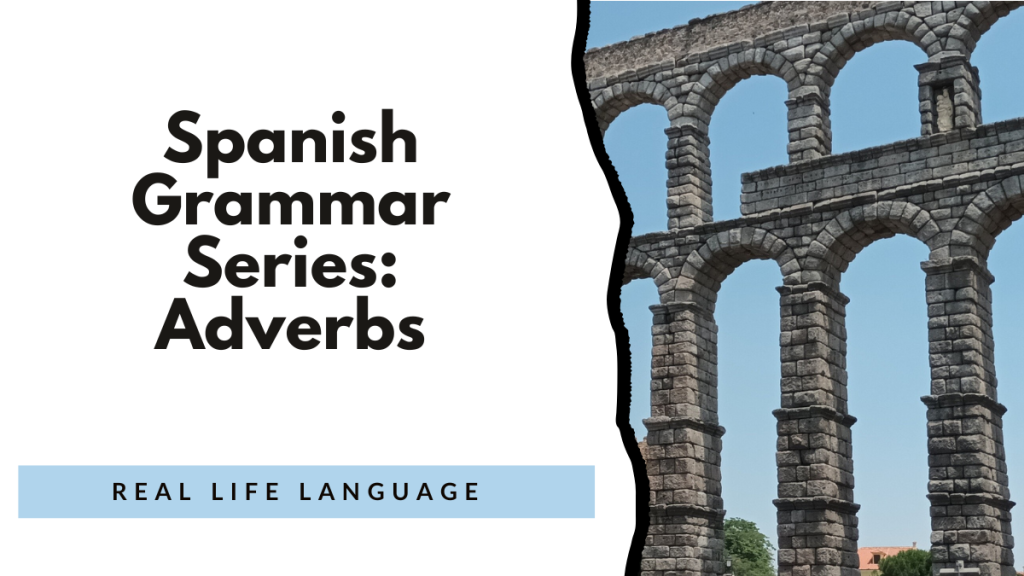The preterite narrates completed actions in the past—events with a clear beginning and end, a finished sequence, or a specific number of times.
1) Core Uses (When to choose the preterite)
- Single, completed past action: Ayer compré pan. (I bought bread yesterday.)
- Series of completed actions (sequence): Entré, saludé y me senté. (I came in, said hello, and sat down.)
- Actions limited in time/number: Vivimos allí tres años. (We lived there for three years.)
- Interrupting action: Estudiaba cuando sonó el teléfono. (I was studying when the phone rang.)
- “Event happened” reporting: Hubo un accidente. (There was an accident/event.)
Contrast with imperfect (ongoing/background/habitual).
Era de noche y llovía (background) cuando apagué la luz (completed action).
2) Regular Conjugations & Accent Pattern
Accent rule: Regular preterites have written accents on yo and él/ella/usted forms.
-AR Verbs (e.g., hablar)
| Person | Form |
| yo | hablé |
| tú | hablaste |
| él/ella/Ud. | habló |
| nosotros | hablamos |
| vosotros | hablasteis |
| ellos/ellas/Uds. | hablaron |
-ER Verbs (e.g., comer)
| Person | Form |
| yo | comí |
| tú | comiste |
| él/ella/Ud. | comió |
| nosotros | comimos |
| vosotros | comisteis |
| ellos/ellas/Uds. | comieron |
-IR Verbs (e.g., vivir)
| Person | Form |
| yo | viví |
| tú | viviste |
| él/ella/Ud. | vivió |
| nosotros | vivimos |
| vosotros | vivisteis |
| ellos/ellas/Uds. | vivieron |
3) Spelling Changes (Yo form)
These preserve pronunciation.
- -car → -qué: buscar → busqué, tocar → toqué
- -gar → -gué: llegar → llegué, pagar → pagué
- -zar → -cé: empezar → empecé, almorzar → almorcé
- -guar → -güé (add diaeresis to pronounce u): averiguar → averigüé
4) Vowel-Stem & “i→y” Verbs (3rd person change)
In -er/-ir verbs where the stem ends in a vowel, i → y in él/ella/Ud. and ellos/ellas/Uds.. Accents as shown.
- leer: leí, leíste, leyó, leímos, leísteis, leyeron
- oír: oí, oíste, oyó, oímos, oísteis, oyeron
- caer(se), creer, poseer follow the same pattern.
-uir verbs (e.g., construir): similar change, but only accents on yo and él/ella/Ud.
construí, construiste, construyó, construimos, construisteis, construyeron
5) Stem-Changing -IR Verbs (“Sandal” change)
Only -IR verbs can stem-change in the preterite, 3rd person only:
- e → i: pedir → pidió / pidieron, servir, preferir, repetir, mentir, seguir
- o → u: dormir → durmió / durmieron, morir → murió / murieron
6) High-Frequency Irregulars (No accents)
These use special stems + endings:
e, iste, o, imos, isteis, ieron (→ eron with j-stems)
a) U-stem
- tener → tuv- (tuve, tuviste, tuvo…)
- estar → estuv-
- poder → pud-
- poner → pus-
- saber → sup-
- caber → cup-
b) I-stem
- hacer → hic- (hizo in 3rd sing.)
- querer → quis-
- venir → vin-
c) J-stem (3rd plural eron, not ieron)
- decir → dij- (dije, dijiste, dijo, dijimos, dijisteis, dijeron)
- traer → traj-
- conducir → conduj- (and all -ducir: traducir, producir, etc.)
d) Totally Irregular Sets
- ser / ir (same forms):
fui, fuiste, fue, fuimos, fuisteis, fueron - dar: di, diste, dio, dimos, disteis, dieron
- ver: vi, viste, vio, vimos, visteis, vieron
- haber (as “there was/were” for events): hubo
7) Meaning Shifts in the Preterite (vs. Present/Imperfect)
Some verbs change their nuance in the preterite:
- conocer = met (first time) → Conocí a Marta ayer.
- saber = found out, learned → Supe la verdad.
- poder = managed to / succeeded in (neg: failed to) → Pude entrar; no pude abrirla.
- querer = tried (neg: refused) → Quise ayudar; no quise esperar.
- tener = got/received → Tuve una carta.
These nuances help storytelling feel natural and precise.
8) Time Expressions that Favor the Preterite
- ayer, anoche, anteayer
- el (lunes) pasado / la semana pasada / el año pasado
- hace + período + (que) + verbo en pretérito → Hace dos años (que) me mudé. (I moved two years ago.)
- de repente, en ese momento, entonces, por fin, una vez, inmediatamente
- durante + tiempo → Viví en Perú durante seis meses.
9) Preterite vs. Imperfect (Quick Contrast)
- Background/ongoing (imperfect) + Completed interrupting action (preterite):
Yo leía cuando sonó el timbre. - Habitual (imperfect): Siempre íbamos al cine.
Specific completed (preterite): Fuimos al cine dos veces el mes pasado.
A helpful mnemonic:
- Preterite = “What happened?” (event, finish line)
- Imperfect = “What was it like / What was going on?” (background, middle of action)
10) Mini Paradigm Reference
Regular Models
- hablar: hablé, hablaste, habló, hablamos, hablasteis, hablaron
- comer: comí, comiste, comió, comimos, comisteis, comieron
- vivir: viví, viviste, vivió, vivimos, vivisteis, vivieron
Irregular Snapshot
- ser/ir: fui, fuiste, fue, fuimos, fuisteis, fueron
- tener: tuve, tuviste, tuvo, tuvimos, tuvisteis, tuvieron
- estar: estuve, estuviste, estuvo, estuvimos, estuvisteis, estuvieron
- hacer: hice, hiciste, hizo, hicimos, hicisteis, hicieron
- decir: dije, dijiste, dijo, dijimos, dijisteis, dijeron
- traer: traje, trajiste, trajo, trajimos, trajisteis, trajeron
- poder: pude, pudiste, pudo, pudimos, pudisteis, pudieron
- poner: puse, pusiste, puso, pusimos, pusisteis, pusieron
- querer: quise, quisiste, quiso, quisimos, quisisteis, quisieron
- venir: vine, viniste, vino, vinimos, vinisteis, vinieron
- dar: di, diste, dio, dimos, disteis, dieron
- ver: vi, viste, vio, vimos, visteis, vieron
- haber (evento): hubo
11) Classroom-Friendly Examples
- Secuencia: Llegué temprano, hablé con la directora y presenté mi proyecto.
- Tiempo acabado: Vivimos en Quito por dos años.
- Interrupción: Dormíamos cuando empezó la tormenta.
- Con matiz léxico: Conocí a mi vecino anoche; supimos la noticia por la radio; no quisieron entrar; pudimos resolverlo.
12) Common Pitfalls & Fixes
- Conocía a Ana ayer. → Conocí a Ana ayer. (met = preterite)
- Sabía la respuesta anoche. → Supe la respuesta anoche. (found out)
- Missing accents on yo/él regular forms: hable, hablo → hablé, habló
- Wrong 3rd plural for j-stems: dijieron → dijeron
- Forgetting spelling changes in yo: yo busce → yo busqué
13) Practice (with answers)
A. Fill in with the preterite (regular/irregular as needed)
- Ayer yo _________ (llegar) tarde.
- Ellos _________ (hacer) la tarea y luego _________ (ver) una película.
- Anoche nosotros _________ (dormir) muy poco.
- ¿Cuándo _________ (conocer, tú) a tu profesor nuevo?
- El año pasado Marta _________ (vivir) en Chile durante seis meses.
- ¿Qué _________ (decir, Uds.) en la reunión?
- De repente, el perro _________ (oír) un ruido y _________ (correr).
- Yo no _________ (poder) abrir la puerta.
- Mis padres _________ (traer) regalos de su viaje.
- A las ocho por fin _________ (empezar) el concierto.
Answers: 1) llegué 2) hicieron / vieron 3) dormimos 4) conociste 5) vivió 6) dijeron 7) oyó / corrió 8) pude 9) trajeron 10) empezó
B. Choose preterite or imperfect
- Cuando yo (era/fui) niño, (iba/fui) al parque todos los días.
- Ayer (empezó/empezaba) a llover a las cinco.
- Mientras (cocinábamos/cocinamos), mi hermano (llegó/llegaba).
- Siempre (veíamos/vimos) esa serie, pero anoche no (pudimos/podíamos).
Answers: 1) era, iba 2) empezó 3) cocinábamos, llegó 4) veíamos, pudimos
14) Quick Decision Flow (Student Tip)
- Is the action completed and bounded in time? → Preterite.
- Is it a sequence of finished actions? → Preterite.
- Does it interrupt something ongoing? → Preterite (the interruption).
- Background, age, time, weather, feelings, was/were -ing? → Imperfect.
15) Ready-to-Use Drills (Rapid Fire)
- Conjugate (yo/ella/ellos): llegar, empezar, buscar, leer, oír, construir
- Convert to preterite with time markers:
- Todos los días estudio → Ayer…
- Siempre cenamos tarde → Anoche…
- Todos los días estudio → Ayer…
- Nuance swap: present→preterite meaning
- conocer, saber, poder, querer, tener
- conocer, saber, poder, querer, tener
Here are some of my favorite resources to engage and inspire learners, to include my lifelong language learning journey.
Building Proficiency for World Language Learners: 100+ High-Interest Activities
Discover over 100 dynamic activities to make world language learning interactive and fun. I wrote this book with some of my favorite activities for educators aiming to build proficiency with high-impact strategies.
Learn more and get your copy here.
5 Weeks of No and Low Prep Fun
Need quick, engaging activities for your class? This free guide includes 25 no-prep and low-prep ideas to save time while keeping students excited about learning.
Download your free copy now.
100s of videos to learn Spanish:

